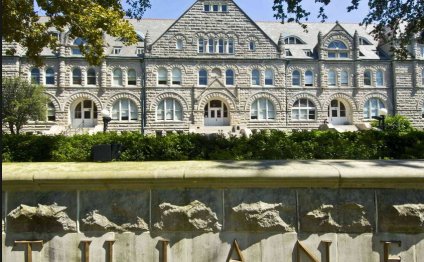
Mental Health Services New Orleans
 “We learned the importance of identifying where resources need to be put initially and where they need to be put long term.” Dr. Howard, psychiatrist, New Orleans “It's hard to say how mental health has recovered, because it was a difficult system for patients to access before Katrina and it's difficult for them to access still, ” said Scheeringa, who evacuated the city but later returned, unlike many of his colleagues.
“We learned the importance of identifying where resources need to be put initially and where they need to be put long term.” Dr. Howard, psychiatrist, New Orleans “It's hard to say how mental health has recovered, because it was a difficult system for patients to access before Katrina and it's difficult for them to access still, ” said Scheeringa, who evacuated the city but later returned, unlike many of his colleagues.
A 2012 New Orleans Health Department analysis of the city's behavioral health infrastructure noted that the city had 196 psychiatrists for 480, 000 people before Katrina. Immediately after Katrina, there were between 22 and 42 psychiatrists to serve a remaining population of 240, 000. In 2010, an estimate in the journal Psychiatric Services placed the number of New Orleans psychiatrists at 65.
As Katrina approached in 2005, Dr. Patrick O'Neill was moving his child to Tulane when he got the call to evacuate. “I told the other parents: 'Put your kids' clothes in the closet, get to the airport and get out of town, ' ” he said.
O'Neill, director of Tulane's telepsychiatry program, was president of the Louisiana Psychiatric Medical Association in 2004 when the group had about 510 members. Now he said there are approximately 320. “It may represent how younger doctors don't join organizations, but it also represents a true decrease in numbers statewide, ” he said. But O'Neill said he thinks telepsychiatry can help meet that shortfall.
MH Takeaways While New Orleans' health system infrastructure is considered stronger today than before Katrina, many say the city's behavioral healthcare is lacking.
For six years, O'Neill has used a Polycom voice- and video-conferencing system that piggybacks onto the state intranet. He said Tulane's faculty averages about 180 hours a week on the system.The Tulane program also provides telepsychiatry services to federally qualified community health centers throughout the state. The service brings together primary-care doctors, psychologists, nurse practitioners, physician assistants and social workers.
That collaboration exists in part thanks to a 2010 Medicaid demonstration waiver program launched after Katrina, said Anthony Speier, an associate professor of psychiatry at Louisiana State University Health Sciences Center in New Orleans who formerly served as the state's coordinator for behavioral health services.
Known as the Greater New Orleans Community Health Connection, the program provides coordinated primary-care, behavioral health and preventive services to some 140, 000 patients at 60 clinics with no out-of-pocket costs for many residents.
Related Content As replacement safety net hospital opens, CEO announces she's leaving
“It set the precedent—mostly out of necessity at that time, ” Speier said. “I think it did some long-term good as well as immediate good.”While arguments have been made that Republican Gov. Bobby Jindal's decision to not expand Medicaid coverage in Louisiana is hurting the state's poor and the providers who care for them, Scheeringa said “relatively few” psychiatrists see Medicaid patients in the first place.
O'Neill said access to mental health services is often barred because many Louisiana psychiatry practices operate as cash-only businesses and don't accept public or private insurance.
The city's mental health needs may be met in emergency departments, a trend that's rippling across the nation. Steps are being taken to increase the number of inpatient mental-health beds, which dropped from 487 to 190 following Katrina, according to the city's 2012 report.
The new University Medical Center has a 38-bed behavioral health unit, which has been filled at or near capacity since the facility opened Aug. 1, according to a hospital spokeswoman.
Across the street from the medical center, a new hospital is being built by the Veterans Affairs Department with plans for 20 acute-care psychiatric beds. It will replace a facility built in 1952 that was closed after its generators and cooling system were submerged for weeks under Katrina's floodwater. However, like other VA hospital construction projects, it is facing delays and cost overruns.
Originally estimated to open this past December at a cost of $625 million, it will now cost $1.035 billion and won't be completed until December 2016.
Still, the project is designed with the lessons of Katrina in mind. Utilities have been moved from the basement to the fourth level and critical areas such as the emergency department are at least 20 feet above sea level. Its windows can withstand a Category 3 hurricane and it will have enough fuel to last a week.
“I think there were many lessons learned, ” Osofsky said. “We learned the importance of identifying where resources need to be put initially and where they need to be put long term. We learned to focus on resilience and be supportive of people's ability to rebound.”
Andis Robeznieks covers public health and wellness, military and veterans healthcare, academic medical centers, and healthcare construction and design. Before joining Modern Healthcare in 2005, he was the ethics and patient safety and quality reporter for American Medical News, the weekly newspaper published by the American Medical Association. He has a master's degree in journalism from the University of Illinois at Urbana-Champaign and a bachelor's in journalism from Eastern Illinois University.
Follow on TwitterRELATED VIDEO



Share this Post
Related posts
Community Mental Health Services Block Grant
What is the Community Mental Health Services Block Grant (MHBG)? The MHBG program s objective is to support the grantees…
Read MoreCommunity Mental Health Services
Community Behavioral Health (CBH) is a not-for-profit 501c (3) corporation contracted by the City of Philadelphia to provide…
Read More










